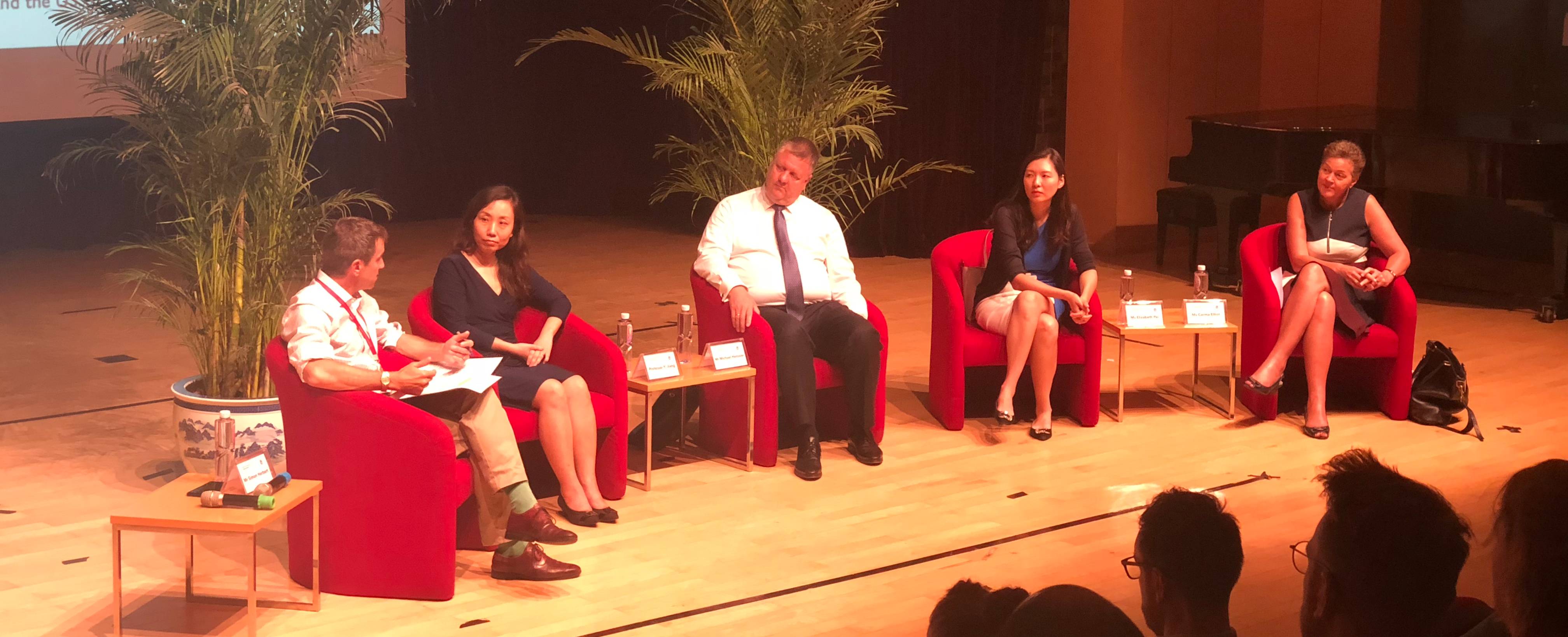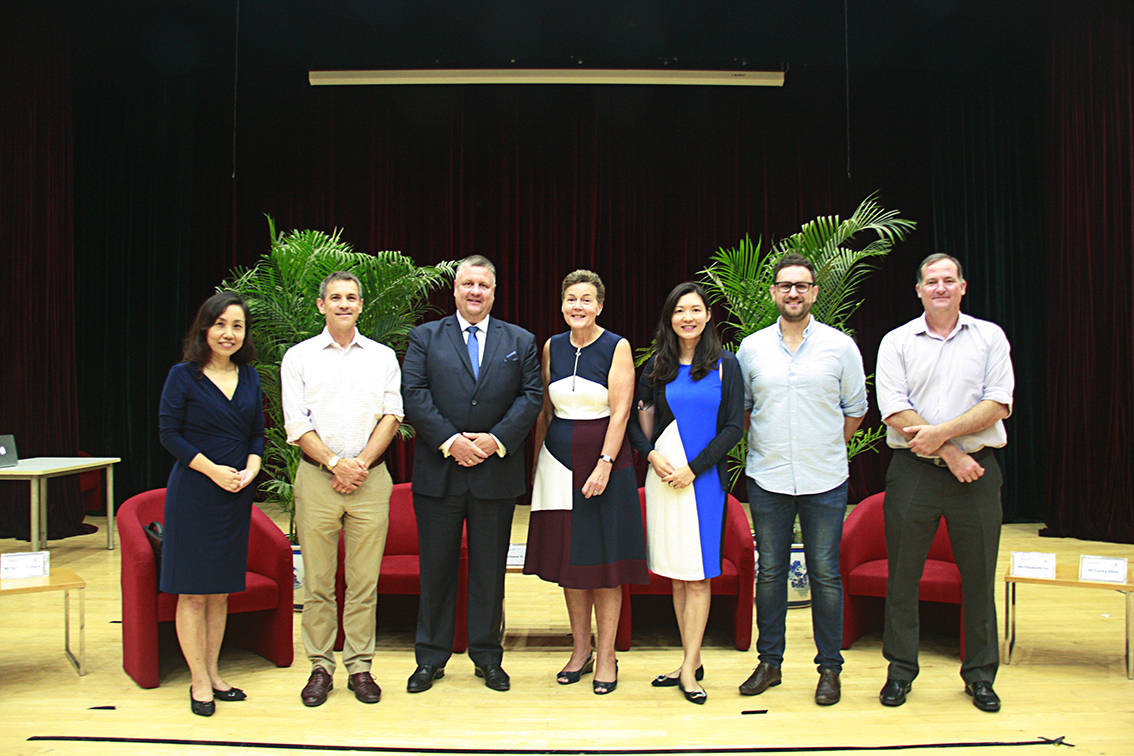Educating Our Future—Viewpoints from the Workplace
According to the McKinsey Institute:
- 47% of today's jobs are at “high risk” of being automated
- 65% of children entering primary schools today will work in occupations that do not exist yet
We educators are constantly aiming to prepare young people for what we think are skills for the future. But are we on the same page about these skills as the leaders in the workplace?
Let's ask them!

As part of professional development just before the school year began, Senior School teachers were treated to a panel Q&A session with esteemed members of the DCB community: Professor Yi Jiang, General Manager of XIN Center of Tsinghua University; Mr Michael Henssler, Chief Operating Officer Asia of Kempinski Hotels and Managing Director of Key International Hotels Management; Ms Elizabeth Pei, Director of Government Affairs of The Walt Disney Company (China); and Ms Carma Elliot, Director of the British Council, China. DCB Headmaster, Mr Simon Herbert, served as compere and moderated the discussions.
Said Chris Newman, Deputy Head of Senior School and organiser of this event about its aim: “The impact of change on the lives of our students is enormous, and it is helpful to examine that impact from a range of professional perspectives especially outside the educational space. This talk was intended as a thought-provoking stimulus for our teachers, to help us sharpen our understanding of the world.”
What did our panelists think what our students should expect going into the workplace? While there were some differences across industries, for the most part, the panelists were in consensus about the skills required for our young adults to succeed.
As remote working becomes more and more popular, flexibility becomes an increasingly important attribute. With flexibility, employers also expect a high degree of trust and discipline. Nevertheless, physical presence remains the best way to collaborate with team members in many situations.
Collaboration will occur on a multi-disciplinary level. And because people live longer now than ever before and will also be working longer than before, everyone needs to be able to work with people across all ages. Young people will need intercultural skills as well as interpersonal skills. EQ is essential to go along with IQ.
The importance of higher education varies by industry. Leadership skills, however, are sought after. Employers are looking for recruits who are self-starters and have an entrepreneurial spirit.
With the last major topic of the Q&A session about the significance of learning Mandarin, our panelists confirmed that DCB has the right approach. With China having so many business interests around the world, even if our students will not live or work in China in the future, having Mandarin skills will still give them a competitive edge.
The discussion ended with a note that ultimately, schools, universities, parents and organisations are all responsible for preparing our children for this unpredictable, disruptive, highly digital future. As Mr. Newman reflected on this collaborative event: “It is reassuring to know that our practices in the senior school–such as leadership development, values education, skills development–are well aligned to what our panellists said they were looking for in young graduates. We are certainly on the right track to build the leaders of the future, so our students graduate worldwise!”









